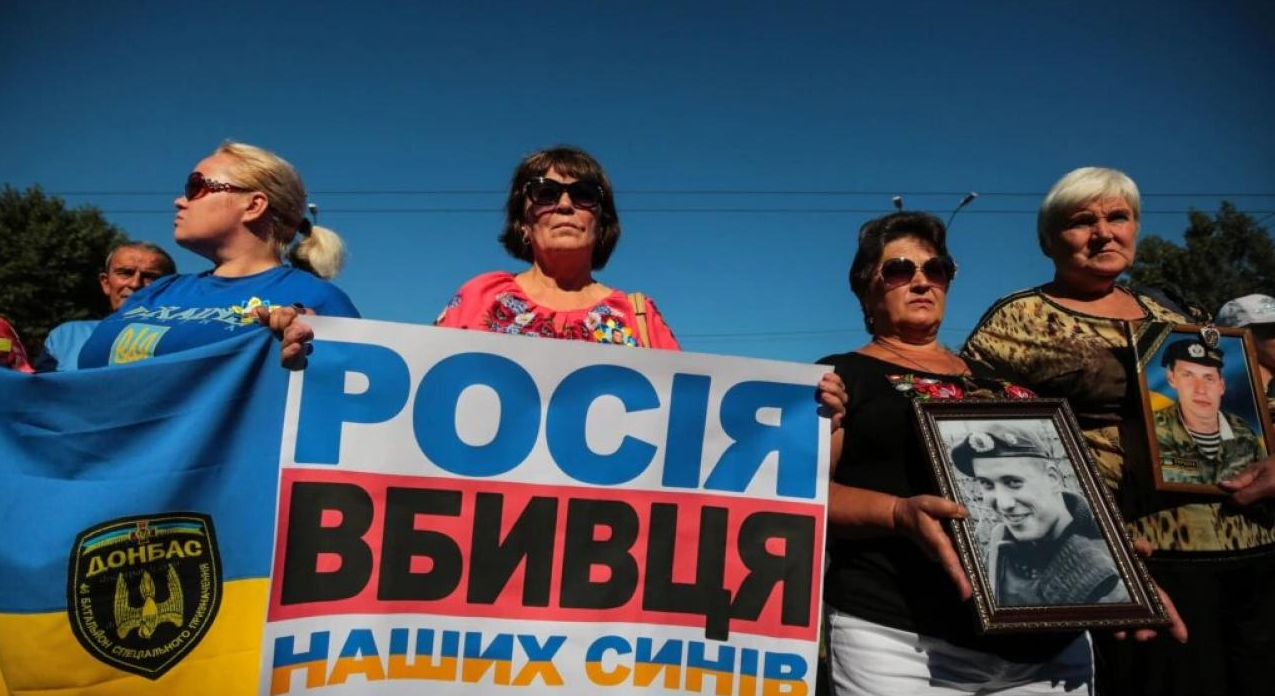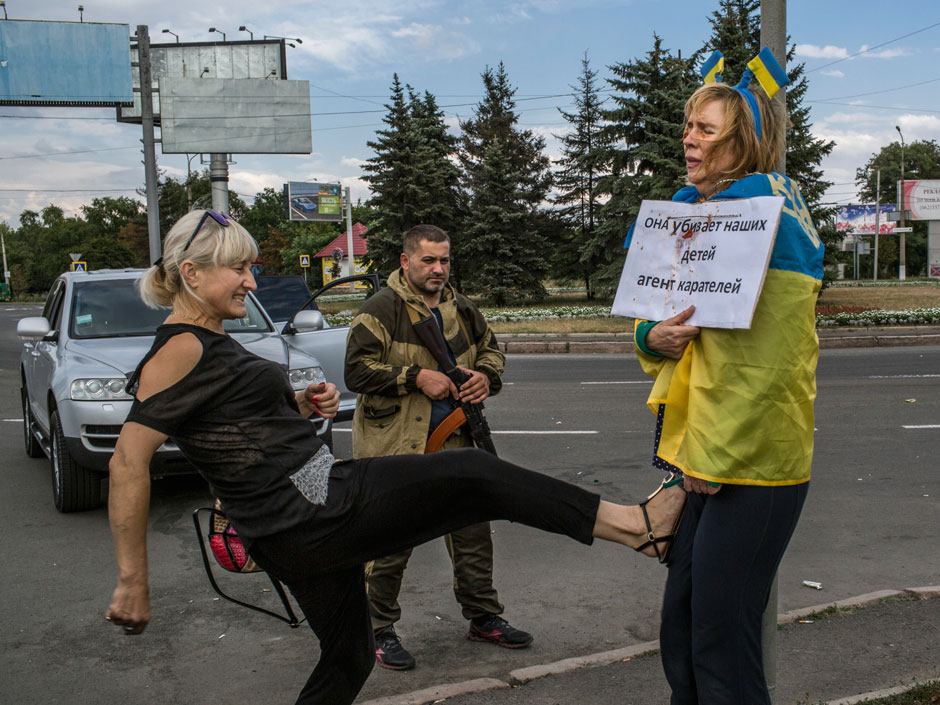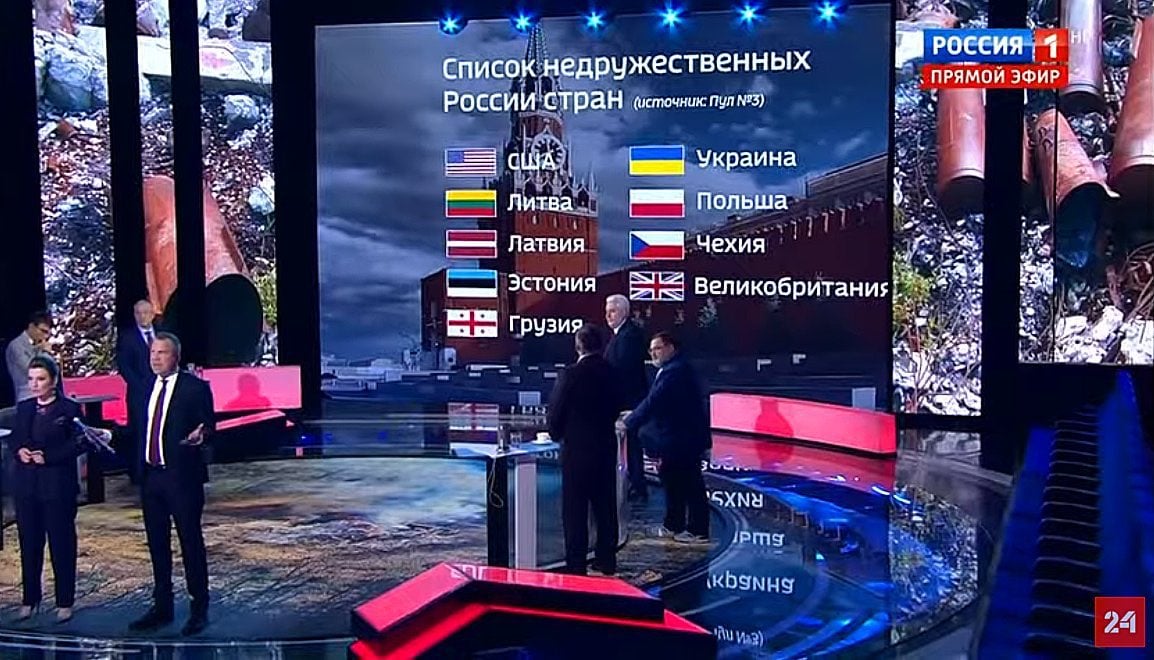Vladimir Putin considers Ukraine not as a country and nation in its own right but as “'the anti-Russia,’ that is as imply yet another Western project” against which he is called as the successor of Moscow princes to fight against, according to Republic portal commentator Mikhail Shevchuk.
Two weeks after promising to produce an article on Ukraine, Putin issued a 5,000-word essay which speaks to his vision of the world in general and of Ukraine in particular, one that does not promise anything positive for either in the future, the writer says.
The essay, which was released in both Russian and Ukrainian, is mostly devoted to Putin’s vision of the history of Russians and Ukrainians, two peoples, he passionately believes are in fact one because of that history and shared characteristics whatever the members of each actually think.
But Putin’s case collapses because he has no way of dealing with the fact that the existence of Ukrainian nationalism and its anti-Russian nature, which Putin points to, presupposes the existence of a separate Ukrainian nation, the existence of which he completely denies.
“Ukrainian nationalism for Putin, Shevchuk says, is the product established in the first instance by enemies.” It was not created by the Soviets when they agreed to the formation of the Ukrainian SSR and defined the Ukrainian nation primarily in linguistic terms. The current Kremlin leader would like to somehow reverse all that, but he doesn’t offer a way forward.
The most he can do is assert what he would like as somehow being historically necessary. “I am convinced, he says, 'that the genuine sovereignty of Ukraine is possible only in partnership with Russia'" – and it is in this phrase which consists the essence of Putin’s message. He can’t deal with two peoples who are similar in many respects but who want to live separately.
And there are so many examples of this: the US and Canada, Austria and Germany, the Scandinavian countries, Shevchuk continues. Many people who even had a common history for much of the past have chosen to go their own ways. Denying that this happens or trying to reverse it only deepens the divisions.

What is most striking is that Putin is obsessed almost alone with Ukraine. “The former Central Asian republics of the USSR are free to establish their own insane dictatorships and the Baltic countries to the contrary to function as democracies. Putin has nothing against this because he considers that such is their nature from time immemorial.”
But “the nature of Ukraine in contrast is to be Malorossiya, a reduced copy of Russia.” And in insisting upon that, “Vladimir Putin is not able to mask the imperial essence of his approach.” He demands that Ukrainians accept that they are part of his Russian world and ultimately of the Russian nation.
And he is prepared to use force to achieve that as he did in Crimea and is doing in the Donbas. From the point of view of the West, his actions in those places are those of an aggressor; but from his point of view, what he has done cannot be described as aggression because they are already properly Russian.
That may have worked as an argument in past centuries, Shevchuk says, “but in the 21st century, basing territorial demands on the unity of origin and ‘the right blood’ already looks unforgivably archaic. Shevchuk concedes that some Ukrainians are also archaic but at least they aren’t trying as Putin is to impose their backward position on others.
The commentator continues: “Putin considers present-day Ukraine ‘the anti-Russia,’ that is as simply one more Western project the struggle against which is what he supposes his mission handed down to him by the Moscow princes.” He might get further if he would acknowledge that Ukraine may be “’another Russia’” rather than an “’anti’” version.
But to do so would undermine his entire worldview and approach, even though promoting “a vulgar imperial approach” while talking about equality now makes it difficult if not impossible to achieve his goals – even if he seems committed to causing trouble for Ukrainians and others in the hopes of achieving something.
Read more:
- Putin’s essay on Russia and Ukraine about far larger issues than that, Yavlinsky says
- How Ukraine can still defeat Nord Stream 2
- Two keys to defeating Nord Stream 2 lie in Poland
- Russia’s ruling party starts campaigning in occupied Donbas for upcoming Duma elections
- Putin’s tale about unity of Russians and Ukrainians prompts Kazan scholar to speak about real unity of Turkic peoples
- Putin’s fixation on Ukraine is demagogic, delusional and dangerous
- Dekulakization. How Stalin liquidated the Ukrainian peasant class (cont’d)
- UN releases data on Donbas war victims starting from 2014
- Putin’s new article – ‘ideological justification for a future war,’ Pastukhov says
- Alternative history: how Russia seeks to annex Kyivan Rus
- Vitaly Portnikov: For Putin, Ukraine does not and will never exist





